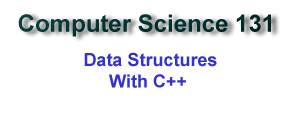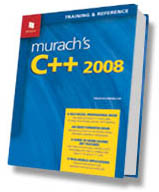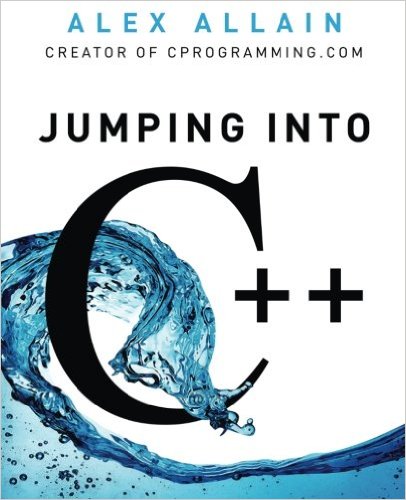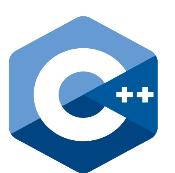|
|
 |
Spring 2018
Ticket #48549
Updated 1/30/2018
|
Instructor: Telephone: E-mail: Web Site: Office hours: Textbook: |
Ronald P. Kessler, Ph.D., MCSE 714.628.4754 rpkessler@hotmail.com http://www.rkessler.com See schedule |
|
 |
Murach's C++ 2008 by Prentiss Knowlton 19 chapters, 570 pages, 244 illustrations Published October 2009 ISBN 978-1-890774-54-7 This is an excellent book for learning modern C++ for Windows desktop apps. |
|
 |
Jumping Into C++ by Alex Allain Get the Kindle version for $19.99 here Publisher: Cprogramming.com (April 2013) ISBN-10: 0988927802 ISBN-13: 978-0988927803 This is an excellent book for learning native C++ |
|
|
This class in data structures is the third semester class in C++ and is designed to help you continue learning how to create native C++ projects as well as modern C++ Windows desktop applications. It is important that you complete CS 121 before taking this course. You must feel comfortable and proficient with Visual Studio, native C++, and the .Net model in order to understand the content of this course. This course picks up where we left off in CS121. If you feel "rusty" and need a refresher, please go back and look at the lessons we covered in that class. The lessons in this class build upon what you have learned and will be much more technical than the first two semester classes were. Evaluation Your final grade in my class will be based on the total number of points you earn. I plan to give you 5 quizzes and 3 exams. The grade which you earn will be based upon the total amount of points you receive on the in-class labs, activities, projects, and exams. Grading will be based upon the following criteria: 90%= A The total possible points in the course will be approximately as follows: Tests 370 (Exam 1 = 100, Exam 2 = 120, Exam 3 =150) Quizzes 150 (Approximately 5 @30 each) Lab Projects 150 (approximately 10 @ 15ea.) Homework 280 (Approximately 10 HW Activities) TOTAL 950
Class
Format There is a no lab that accompanies this course. But we will do projects in class so you can earn points for them. I will be available after class to help you or give you extra time to work.
Class Drops
Accommodations for Disabilities MAKE-UP EXAMS It is possible to take a make-up exam or quiz during the semester (EXCLUDING THE FINAL) if the exam is missed due to illness or other emergency. Please contact me right away if you cannot attend class when we are having an exam so I can help you with the best solution for your situation. Student Code of Conduct/Civility/Cell Phones/Internet Use
Plagiarism You are encouraged to work with other students in the class, but all work that you turn in for grading must be your own. Taking credit for another students work is plagiarism and is a violation of SCC academic policy. You will be reported for academic dishonesty. Don't let this happen to you! Remember, all work that you turn in for grading must be your original work. Specific Student Learning Outcomes
The number of projects and the points possible for exams, projects and activities are subject to change without notice. This information is intended to be an accurate overview of this course so you will know what to expect during the semester. But sometimes, we will need to modify this plan. The Rancho Santiago Community College District is happy to provide reasonable accommodations for students with disabilities. It is your responsibility to inform me if you have such needs.
|
||
